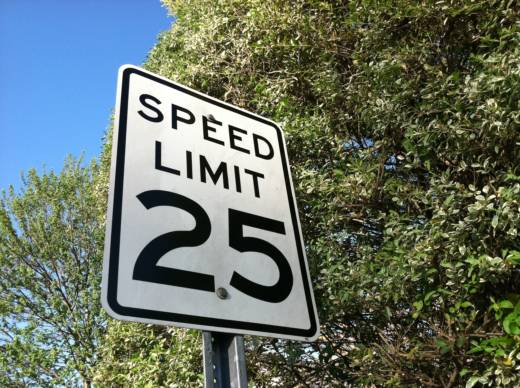The bill would impose a number of restrictions on the five-year automated speed enforcement pilot: Fines would be limited to $100 and would be levied only against vehicles detected traveling 10 mph or more over posted speed limits, for instance, and tickets issued under the program would not count as a point on drivers’ records.
To answer privacy concerns, the bill would have prohibited snapping drivers’ pictures — only pictures of license plates would be allowed — and set strict limits on how long the cities could retain data captured by the speed cameras.
Although Chiu’s proposal won wide local support, including San Francisco Mayor Ed Lee and San Jose Mayor Sam Liccardo, the Metropolitan Transportation Commission and pedestrian and cycling advocacy groups, it encountered vehement opposition from law enforcement groups.
California Highway Patrol Officer Tom Maguire, representing the CHP’s rank-and-file union, challenged the notion that speed cameras would help improve street safety.
In his 21-year career patrolling the East Bay, Maguire said, “I have never investigated or assisted in an investigation that involved a vehicle and a pedestrian or a vehicle and a bicycle that resulted in a fatality where speed was the primary collision factor. Never.”
He argued that most pedestrian and cyclist fatalities involve other types of violations — motorists’ failure to yield to pedestrians, for instance, or violating a state law that mandates a 3-foot safety zone when drivers pass cyclists.
Maguire also argued that speed cameras could inspire hostility toward police officers.
“In this day when unprovoked violence and mistrust against law enforcement may be at an all-time high … this method of blindly citing drivers by the thousands will completely undermine any and all efforts of the law enforcement community to regain the trust of the public,” Maguire told the committee.
In withdrawing AB 342 for the time being, Chiu emphasized that the bill had the support of the California Police Chiefs Association and the leadership of the police departments.
“As the CHP knows, I am very open and willing and have pushed our sponsors to ensure that this pilot is structured in such a way that the California Highway Patrol and others can have input on the data we are going to collect and the data that at the end of a four- or five-year would be analyzed,” Chiu said.
Chiu added he would begin work immediately on amendments to satisfy opponents’ concerns. The bill would come up for consideration in early 2018.

